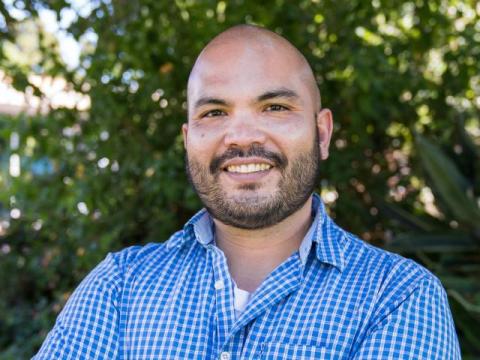NSF awards $300,000 demonstration project grant to collaboration involving UCSB Computer Science professor Richert Wang

The Broadening Participation in Computing demonstration project, a collaboration between California State University Chico and UC Santa Barbara, has been awarded a National Science Foundation grant of $300,000. Led by UCSB’s associate teaching professor Richert Wang and Chico’s associate professor Kevin Buffardi, the project team will focus on improving representation, relevance, and equity in computer science by framing high school instructional practices from the perspectives of women and Hispanic students.
The project will develop instructional videos that feature university students from marginalized backgrounds sharing how coding concepts relate to their lived experiences. At the same time, the project team will embed culturally-relevant instructional practices into AP Computer Science classes by partnering with a high school serving a majority Hispanic student population — with one of these being Dos Pueblos High School not far from UCSB. The same practices will simultaneously be incorporated into Chico State's teacher professional development course to equip future AP CSA teachers with pedagogy and strategies to increase inclusivity and equity in their classrooms.
The Broadening Participation in Computing demonstration project will develop and integrate a personalized system of instruction based on culturally responsive pedagogy, competency-based learning, and multimedia principles of learning to facilitate diversity, equity, and inclusion in AP CSA courses. The project objectives include:
- Providing a platform to exhibit diverse representation and unique perspectives of computing.
- Facilitating an equitable learning framework in K-12 computing education.
- Improving self-efficacy and inclusion in computing.
These unique perspectives will be showcased on an online platform that provides inclusive examples of coding applications with integrated drill-and-practice. The platform will showcase how coding is meaningful in culturally relevant contexts. Its hands-on practice interface will provide automated feedback that will help high school students identify and overcome errors as they grow in their coding mastery, as modeled by their near-peers. As a personalized system of instruction, it will track each student's progress and empower teachers to provide equitable assistance for students.
This award reflects NSF's statutory mission and has been deemed worthy of support through evaluation using the Foundation's intellectual merit and broader impacts review criteria.